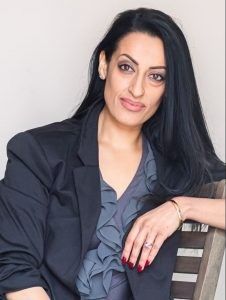MORE champions are needed to talk about dementia and raise awareness among south Asian communities in the UK, Alzheimer’s Society ambassador, Dr Karan Jutlla, has said.
A survey in May to mark Dementia Action Week showed that one in three people (33 per cent) who noticed symptoms of dementia in themselves or a loved one kept their fears to themselves for over a month.
“Dementia is largely viewed negatively among the south Asian community. Stigma and taboo prevent thousands of families from seeking support,” Jutlla told Eastern Eye.
“Currently three per cent of people in the UK who live with dementia are from black, Asian and minority ethnic (BAME) communities – that’s approximately 25,000 people. Alarmingly, however, there are no specific statistics that demonstrate how many people from the south Asian community live with dementia.
“A great deal of my own research, along with Alzheimer’s Society’s 2022 policy reporting, suggests we are likely to see an increase in dementia cases among south Asians, reinforcing the importance for people within the community to step forward and seek an early and accurate diagnosis, so they’re able to unlock the vital support they need”.

Jutlla said community nurses and GPs must be supported to work towards a “truly inclusive diagnostics and post diagnostic care”.
It’s also important that resources developed for screening and diagnostic assessment of people from south Asian backgrounds are fit for purpose and culturally appropriate, she added.
Healthcare services need more investment to reach every community and break down barriers, she said.
Jutlla, who is also the dementia lead for the University of Wolverhampton, added that proper translation services – when combined with increased awareness and education – can help change the perception about the disease.
“Many Indian languages, such as Urdu and Punjabi, don’t even have a word for dementia, with symptoms of dementia often translated incorrectly as ‘memory loss’ or ‘mental ill health’. To many in the south Asian community, supporting family members, particularly elderly relatives, and remaining a tight knit family is of paramount importance.
“But support must be extended to encouraging family members to openly talk about their dementia worries,” she said.
“Only by championing the conversation around dementia can they break cultural taboos and the stigma and get their loved ones the quality support and care they need”.
Jutlla noted that post-diagnostic support is improving, but said there was still a long way to go.
The Alzheimer’s Society is helping to support the south Asian community by translating information, advice and support into 11 languages.
Last year, they piloted a resource page tailored for Punjabi-speaking communities (the third most spoken language in the UK) tackling culturally specific issues.
Jutlla said the biggest challenge when dealing with dementia is stagnating diagnosis rates, which reached a five-year low during the pandemic.
She added, “Only 50 per cent of nurses feel confident in spotting the signs and symptoms of dementia. It’s clear more resources and support are needed so that nurses are able to play their vital role in supporting people affected by dementia to get an all-important diagnosis as effectively as possible.
“A key part of this puzzle is understanding the barriers people from ethnic communities face when getting a diagnosis, particularly as there is a higher prevalence of dementia among these communities.”
Dementia requires a person-centred approach and people affected by the condition can begin to live well with correct support and care, Jutlla said.
“A large amount of my research and work with Alzheimer’s Society has highlighted healthcare inequalities within ethnic minority communities and tackled subjects often considered taboo.
My role as a researcher is to identify these healthcare inequalities so that people who experience these disadvantages or fear accessing support can unlock the vital support they need, plan and avert crises.
“I encourage every member of the south Asian community worried about theirs or their loved one’s conditions to seek an early and accurate diagnosis and turn to leading experts like Alzheimer’s Society for guidance and support,” Jutlla said.
She added, “With a third of us going onto develop dementia in our lifetimes, it is vital that south Asian families encourage one another to talk about their dementia worries and understand that it’s not called getting old – it’s called getting ill.”
